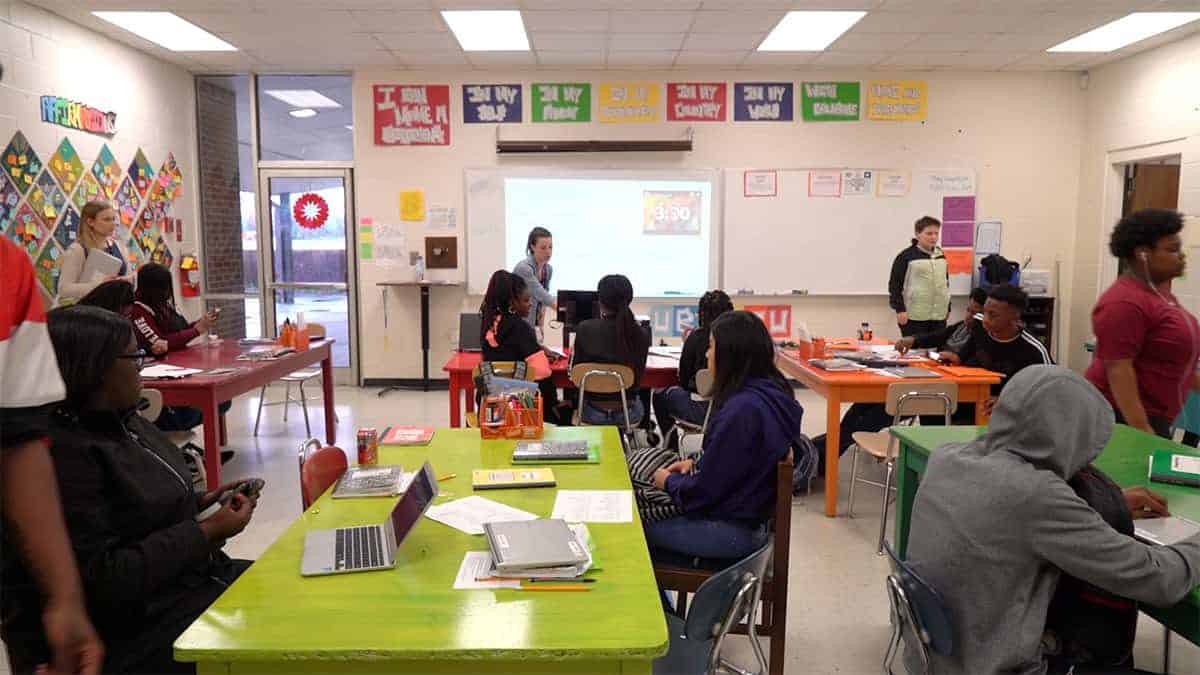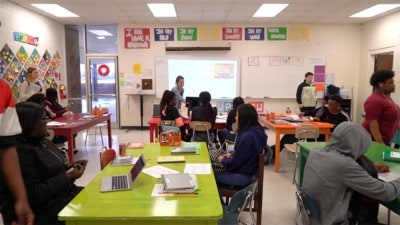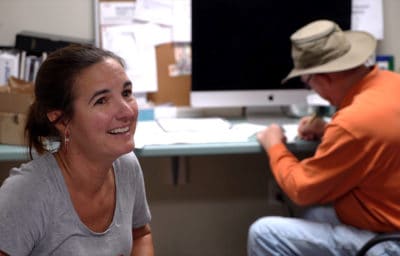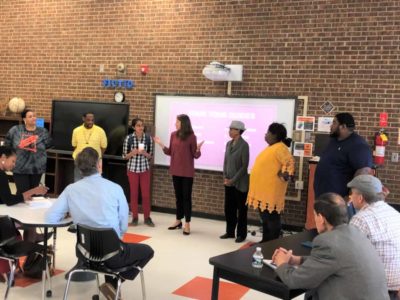
As planning for the new school year ramps up in North Carolina, educational leaders are navigating unprecedented disruption, with no clear playbook, at a time when the inequities in our educational system have been laid bare by the COVID-19 pandemic and a renewed national awareness of centuries of racism and injustice. As we plan for a new school year, it’s clear that there is no returning to “normal,” and that normal wasn’t serving millions of our students in the first place.
So how do we use this opportunity to create a more relevant, impactful, and just education system?
The answer is simple: ask our students.
Our students know what they need to learn and thrive. They know what’s broken and what’s working in the school system that they left behind in March and the new one we are building in this moment. Their experiences are more critical data points than anything you will find in a spreadsheet or PowerPoint presentation. They are the users at the center of the experience, and those in seats of power have an opportunity to empower them — North Carolina’s future leaders — to co-create a responsive education system that is truly grounded in student experience and their vision for the future.
What was it like to be a student this spring? To navigate a learning experience away from routines and structures and the communities they have built at school? Why did some students thrive with new levels of autonomy while others found it impossible to prioritize school amid caring for siblings or working to financially support their families? What was it like when your learning could happen anytime, anywhere, be it inside a crowded apartment or outside in the expanse of rural North Carolina? The answers to these questions, and so many more, should be driving the choices we are making as we reimagine our education systems.
Long before the pandemic, innovative school leaders like Teach For America North Carolina alumni Donnell Cannon, Jenny O’Meara, Erin Swanson, Hillary Braden, and Sayre Olsen in rural North Edgecombe County made a bet that students knew best about what they needed from a school. They listened closely, analyzed countless empathy interviews, and gave their students a seat at the table in designing and upholding a school community that would best meet their needs. As they tested and failed and learned alongside their students, the most courageous thing they did was listen. It led to remarkable academic gains in a community that had long been written off, and confirmed that students not only had the answers, but also a strong desire to co-create the educational experience they so clearly deserved.
As leaders, we have to bring students to the table and invite the discomfort that comes with facing the ways that we are failing our students. If we don’t, we will never deconstruct the very systems that are perpetuating inequity. A powerful dialogue took place this year when EdNC hosted student town halls so that students could engage directly with the candidates for North Carolina’s Superintendent of Public Instruction. Students voiced their needs for better mental health resources, restorative justice opportunities, and schools equipped to serve our rural communities. There was power both in the truths that those students shared that day and the way in which they were heard by leaders capable of doing something about it.
As we race to plan for a new school year, we must lead from a place of curiosity — from a place grounded in what our students want and need. If our leaders across the state can stop and listen and remove the obstacles blocking the vision that our students hold, we might finally deliver on the promise of equity and excellence for all.






